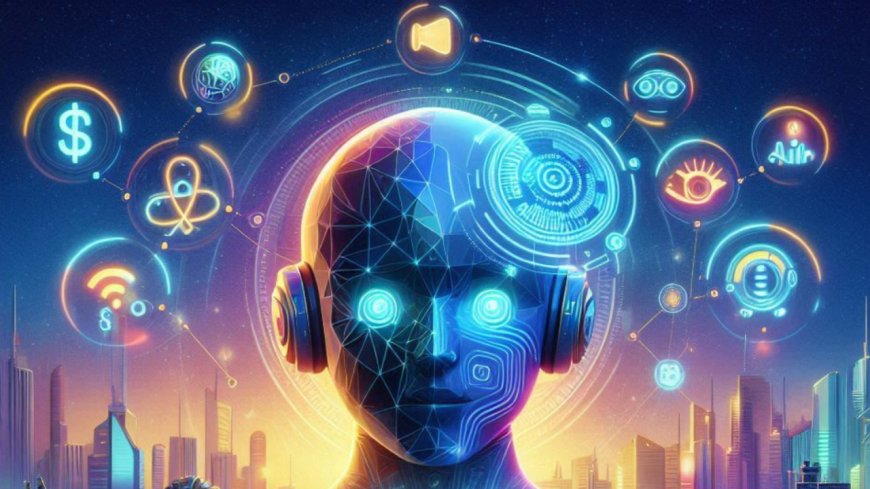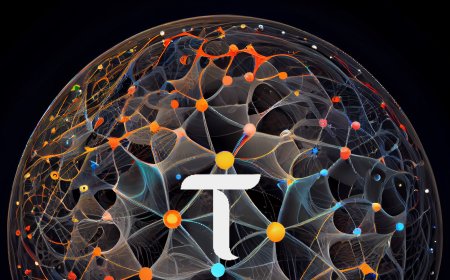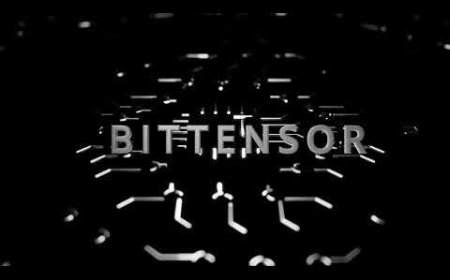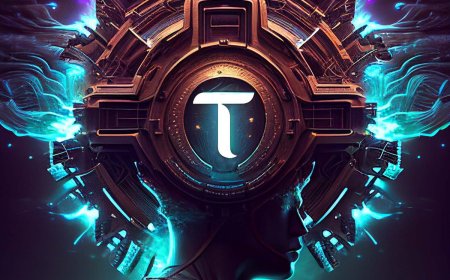BitTensor: Pioneering Decentralized AI for a Democratic Future

The rapid advancement of artificial intelligence (AI) has sparked both excitement and concern across the globe. As tech giants race to develop increasingly powerful AI systems, questions about governance, ethics, and the potential risks to humanity have come to the forefront. In this landscape, Bit Tensor, a pioneering project in decentralized AI, offers a unique approach that could reshape the future of AI development and ownership.
The AI Dilemma: Centralization vs. Decentralization
The current AI landscape is dominated by a handful of large tech companies, raising concerns about the concentration of power and the potential for misuse. Recent calls for a moratorium on AI development by industry leaders have only intensified the debate around AI governance and control.
Jake Steves, founder of Bit Tensor, argues that the solution lies not in halting progress, but in democratizing AI ownership and development. "We have invented new forms of ownership with digital currencies," Steves explains. "We can define structures of ownership around technologies in ways that we've never been able to do before."
Bit Tensor: A New Paradigm for AI Development
Bit Tensor leverages blockchain technology and cryptocurrency principles to create a decentralized AI network. The project aims to incentivize the production of AI in a way that distributes ownership and control among a wider community of participants.
Key features of the Bit Tensor model include:
- Open Ownership: Anyone can participate in the network as a miner, validator, or token holder.
- Incentive Mechanism: The system rewards computers for producing useful outputs in a machine learning sense.
- Market-Driven Development: By creating markets around AI "digital commodities," Bit Tensor aims to drive innovation and scale AI development more efficiently than traditional corporate models.
- Decentralized Governance: The project aims to gradually implement a decentralized autonomous organization (DAO) structure to ensure community-driven decision-making.
The Power of Decentralized Computing
Steves points out that the largest computing structures in the world are actually in the cryptosphere. "Ethereum and Bitcoin are the largest supercomputers in the world," he notes. "They're hundreds of times larger than the data warehouses of companies like Google."
By applying similar incentive structures to AI development, Bit Tensor aims to harness this decentralized computing power for machine learning and AI tasks. This approach could potentially outpace traditional corporate AI development models.
Addressing AI Ethics and Governance
The Bit Tensor model offers a potential solution to some of the key ethical concerns surrounding AI development:
- Transparency: By making the AI development process more open and distributed, it becomes easier to audit and understand the inputs and decision-making processes of AI systems.
- Diversity: A decentralized network can incorporate a wider range of perspectives and approaches, potentially leading to more robust and less biased AI systems.
- Accountability: With ownership distributed among a larger community, there's a built-in system of checks and balances that could help prevent misuse or unethical applications of AI.
- Democratization: By allowing anyone to participate in AI development and ownership, Bit Tensor aims to prevent the concentration of AI power in the hands of a few large corporations or governments.
Challenges and Criticisms
Despite its potential, the decentralized AI model faces several challenges:
- Technical Complexity: Coordinating a decentralized network of AI developers and miners presents significant technical challenges.
- Regulatory Uncertainty: As a novel approach to AI development, Bit Tensor may face regulatory hurdles in various jurisdictions.
- Adoption by Traditional AI Researchers: Many machine learning experts are skeptical of cryptocurrency and blockchain technology, which could slow adoption of the Bit Tensor model.
- Potential for Misuse: While decentralization can enhance security and ethics, it also presents risks if bad actors gain significant influence in the network.
The Bit Tensor Community
One of the most intriguing aspects of Bit Tensor is its community. Steves describes a diverse ecosystem of participants, many of whom might not fit the traditional mold of AI researchers or developers.
"The people that get into the system and really mine it and really come to control a lot of the network are not the people that you'd expect," Steves explains. This diversity of participants could lead to innovative approaches and solutions that might not emerge in more traditional, centralized AI development environments.
The Future of AI: Decentralized and Collaborative
Steves envisions a future where AI development is not dominated by a single, all-powerful system, but rather by a "plethora of different models that are communicating with each other and learning from each other." This decentralized, collaborative approach could lead to more robust, diverse, and ethically sound AI systems.

Implications for the Global AI Landscape
The Bit Tensor model could have far-reaching implications for the global AI landscape:
- Reducing Power Concentration: By distributing AI development and ownership, Bit Tensor could help prevent the monopolization of AI technology by a few large corporations or nations.
- Accelerating Innovation: The open, incentive-driven model could potentially accelerate AI development by tapping into a global pool of talent and resources.
- Enhancing AI Ethics: The transparent, community-driven approach could lead to more ethical AI systems that better reflect diverse global values.
- Bridging the AI Divide: By lowering barriers to entry, Bit Tensor could enable individuals and organizations from around the world to participate in and benefit from AI development.
Challenges in AI Governance
The rapid advancement of AI technology has outpaced the development of effective governance frameworks. Traditional regulatory approaches may struggle to keep up with the pace of innovation in the AI field.
Bit Tensor's decentralized model offers a potential solution by embedding governance mechanisms directly into the AI development process. By distributing ownership and control among a wide network of participants, the system creates built-in checks and balances that could help mitigate some of the risks associated with centralized AI development.
The Intersection of Cryptocurrency and AI
The Bit Tensor project highlights the growing intersection between cryptocurrency technology and AI development. By leveraging blockchain and cryptocurrency principles, Bit Tensor aims to create a more open, transparent, and democratically governed AI ecosystem.
This approach could potentially address some of the key criticisms leveled at both the AI and cryptocurrency industries:
- For AI: Addressing concerns about centralization, lack of transparency, and potential misuse.
- For Cryptocurrency: Demonstrating practical, high-value applications of blockchain technology beyond financial speculation.
Global Perspectives on AI Development
While much of the discourse around AI development and regulation has been centered in the United States and Western Europe, Bit Tensor's decentralized model could shift the balance of power in the global AI landscape.
By enabling participation from anywhere in the world, this approach could lead to a more globally representative AI development process. This could be particularly impactful for regions that have traditionally been underrepresented in the tech industry.
The Role of Open-Source in AI Development
The Bit Tensor model aligns closely with the principles of open-source software development. By making AI development more transparent and accessible, it could accelerate innovation in the field.
However, this approach also raises questions about how to balance openness with the need to protect sensitive or potentially dangerous AI capabilities. Finding the right balance between open collaboration and responsible development will be a key challenge for projects like Bit Tensor.
Conclusion: A New Paradigm for AI Development
As the world grapples with the implications of rapidly advancing AI technology, projects like Bit Tensor offer a glimpse of an alternative future. By leveraging the principles of decentralization and open ownership that have emerged from the cryptocurrency world, Bit Tensor proposes a new paradigm for AI development that could address many of the ethical and governance challenges facing the field.
While the project faces significant technical and adoption challenges, its approach offers a compelling vision of a more democratic, transparent, and ethically sound AI ecosystem. As the global conversation around AI governance continues to evolve, the ideas and principles embodied by Bit Tensor are likely to play an increasingly important role.
Whether Bit Tensor itself becomes the dominant model for AI development or simply inspires new approaches to the field, its core idea - that AI should be owned and controlled by a broad, global community rather than a handful of powerful entities - is likely to shape the future of AI for years to come.
As we move forward into an AI-driven future, projects like Bit Tensor remind us that we have choices in how we develop and deploy these powerful technologies. By embracing principles of openness, decentralization, and collective ownership, we may be able to harness the immense potential of AI while mitigating its risks, creating a future where advanced AI systems serve the interests of humanity as a whole.
Source : @The Bittensor Hub.
















